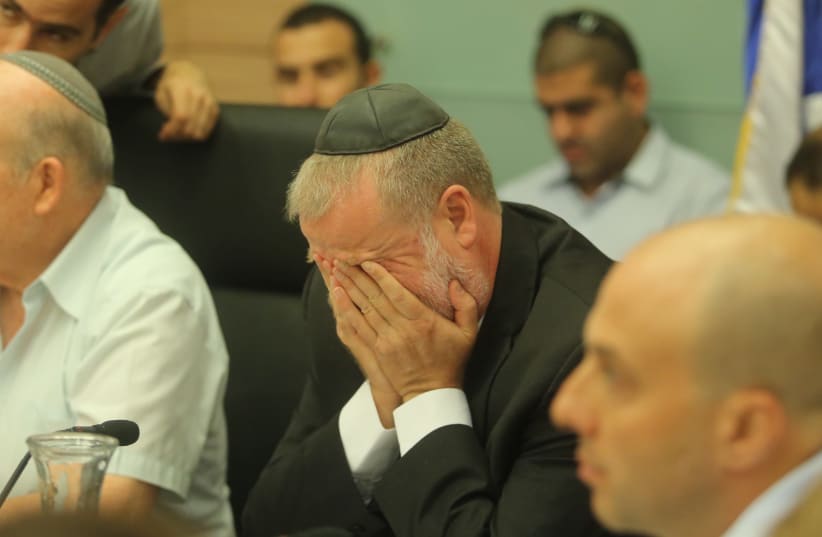By early January, there were extensive leaks to the media that Mandelblit would announce his intent to indict Netanyahu no later than February 21, before the political party lists are finalized. The reports took the deadline date as a certainty.
Suddenly on Tuesday night, the same journalists leaked that Mandelblit would not publicize his decision until sometime after the political party lists were closed.
How were the predictions so wrong – and what does that tell us about the internal battle going on right now between Mandelblit and his staff?
Incidentally, those journalists reporting the leaks were right about some important issues. They were right that Mandelblit met in late December with a mix of former attorneys-general, Supreme Court justices and head state attorneys.
The esteemed list included Yehuda Weinstein, Meir Shamgar, Aharon Barak, Moshe Lador, Elyakim Rubinstein, Dorit Beinisch, Edna Arbel, Gavriel Bach and Yitzhak Zamir. Mandelblit told them that he intended to issue his decision before the election – a position they supported.
They were right – so far – that Mandelblit would face down pressure from Netanyahu to push the decision off until after April 9. While his decision is no longer expected by February 21, it is still expected before April 9.
This makes the question even stronger about why the predictions were wrong about a decision before February 21.
First, at no time did The Jerusalem Post hear directly from Mandelblit or sources close to him that February 21 was a holy deadline.
Rather, the Post received unequivocal indications as early as June 2018 that Mandelblit would indict Netanyahu in Cases 4000 and 1000 – the Bezeq-Walla! Affair and the Illegal Gifts Affair – but indications were always that the likely 2019 timing of the indictment was more flexible.
Second, there has been a steady stream of leaks from the prosecution throughout Mandelblit’s “secret” deliberations which have pointed toward indictments in all or most of the cases against Netanyahu – and they focused on earlier dates.
Clearly, the leaking from the prosecution shows a desire to build the drum beat toward Netanyahu’s indictment in order to lay the groundwork for potentially toppling a prime minister.
The leakers also attributed “the delay” to Mandelblit being slightly worn down from Netanyahu’s attacks and from ongoing disputes about Case 2000, the Yediot Ahronot-Yisrael Hayom Affair.
In Case 2000, Mandelblit has disagreed from the start with the majority of the prosecution and police who want a bribery indictment, and it remains to be seen if he will close the case, overriding their recommendation.
But put differently, the leakers have admitted that when they leaked in an attempt to move Mandelblit in a specific direction against his will, the leaks failed.
So when will the decision come down?
If history is any indication, Mandelblit will make the announcement about five weeks before Election Day – around the first week of March.
If he does, he would be following the almost identical story from 2012 of his predecessor Yehuda Weinstein regarding the timing to indict Avigdor Liberman in 2013 before the January 22 election.
On October 10, 2012, a large number of media sources reported that Weinstein would issue the decision within two to three weeks. But a month later, he hinted that his decision would not be until December.
Just over five weeks before the election, on December 12, 2012, his decision regarding Liberman came down.
Sources indicate that any decision less than a month before elections could be viewed as more problematic.
That means that, internal battles within the prosecution aside, D-day in the prime minister’s public corruption probes probably has only moved from days away to weeks away.
